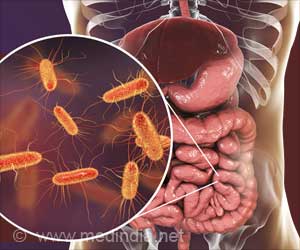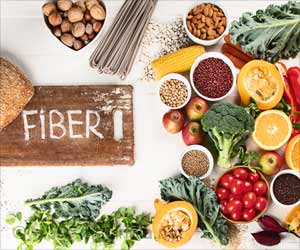The way you prepare your meal determines how healthy it is. Cooking food generates a chemical process that renders it either edible or inedible to all.
- High-temperature cooking can lead to the formation of harmful substances like acrylamide in potatoes, agaritine toxins in mushrooms, and nitrosamines in spinach
- To minimize the risks, it's important to use lower temperatures, shorter cooking times, and proper cooking techniques
- Additionally, avoiding overcooking, reheating, and storing foods properly can help reduce the formation of toxins and ensure safer, healthier meals
Reducing Acrylamide Formation in Potatoes: Tips for Safe and Delicious Cooking
Potatoes are a staple in many cuisines and can be prepared in numerous ways. However, when exposed to high heat, potatoes undergo a chemical reaction that can lead to the formation of acrylamide. Acrylamide is a potentially harmful substance that has been linked to cancer in animal studies (1✔ ✔Trusted SourceEating overcooked starchy food is linked to cancer, agency warns
Go to source). It forms when certain amino acids and sugars react at temperatures above 120°C (248°F). The longer the cooking time and the higher the temperature, the more acrylamide is produced. To minimize the risk of acrylamide formation, follow these tips:
- Cut potatoes into thicker slices or chunks to reduce their surface area, as this can decrease acrylamide formation
- Soaking raw potato slices in cold water for 15-30 minutes before cooking can help remove some of the starches and reduce acrylamide formation
- Avoid overcooking potatoes or cooking them at very high temperatures. Instead, aim for a golden brown color rather than deep browning or charring
Safe Cooking Practices for Mushrooms: Preventing Agaritine Toxicity and Enjoying Flavorful Dishes
Mushrooms are prized for their earthy flavors and versatility in cooking. However, certain types of mushrooms contain heat-sensitive toxins that can be released when cooked for too long or at high temperatures. These toxins, known as agaritines, can lead to digestive issues when consumed in large amounts.To minimize the risk of agaritine toxicity, consider the following guidelines:
- Cook mushrooms at moderate temperatures and for a shorter duration to limit the release of toxins
- Avoid reheating cooked mushrooms, as this can further increase the production of agaritines
- If you're using wild mushrooms, be cautious and ensure proper identification, as some species are known to contain more toxins than others
Protecting Nutritional Value: Safeguarding Against Nitrosamine Formation When Cooking Spinach
Spinach is a nutrient-dense leafy green vegetable packed with vitamins and minerals. However, when spinach is cooked or reheated, it can undergo a chemical reaction that leads to the formation of nitrites. Nitrites are compounds that, when combined with certain substances in the stomach, can form potentially harmful compounds called nitrosamines. Nitrosamines are associated with an increased risk of cancer.To minimize the formation of nitrosamines when cooking spinach:
- Use lower cooking temperatures and shorter cooking times to reduce nitrite conversion
- Avoid reheating cooked spinach, as this can further promote the formation of nitrosamines
- Consider consuming spinach in its raw form to enjoy its nutritional benefits without the risk of nitrosamine formation
Safe Fish Preparation: Minimizing Toxin Exposure and Ensuring Freshness for Optimal Health
Fish is a rich source of omega-3 fatty acids, lean protein, and essential nutrients. However, certain types of fish can contain naturally occurring toxins such as mercury and histamine, which can become more concentrated when cooked or stored improperly.To minimize the risk of toxin exposure when cooking fish:
- Choose fish varieties that are lower in mercury, such as salmon, trout, and sardines
- Avoid overcooking fish, as prolonged cooking can lead to the breakdown of proteins and the formation of histamine
- Store fish properly at cold temperatures and consume it within the recommended time frame to prevent bacterial growth and histamine formation
Preserving Honey's Goodness: Preventing the Formation of Hydroxymethylfurfural (HMF)
Honey is a natural sweetener widely used in various culinary applications. However, when honey is heated, it can undergo a chemical reaction that leads to the formation of a toxic compound called hydroxymethylfurfural (HMF) (2✔ ✔Trusted SourceStudies on the physicochemical characteristics of heated honey, honey mixed with ghee and their food consumption pattern by rats
Go to source). High temperatures and prolonged heating can increase the levels of HMF in honey.
To minimize HMF formation when using honey:
- Use lower temperatures when incorporating honey into recipes. For example, add it to warm rather than boiling liquids
- Consider adding honey towards the end of the cooking process to minimize exposure to high heat
- Store honey properly in a cool and dark place to preserve its quality and minimize the formation of HMF
References:
- Eating overcooked starchy food is linked to cancer, agency warns - (https://pubmed.ncbi.nlm.nih.gov/28115327/)
- Studies on the physicochemical characteristics of heated honey, honey mixed with ghee and their food consumption pattern by rats - (https://pubmed.ncbi.nlm.nih.gov/22131701/)













